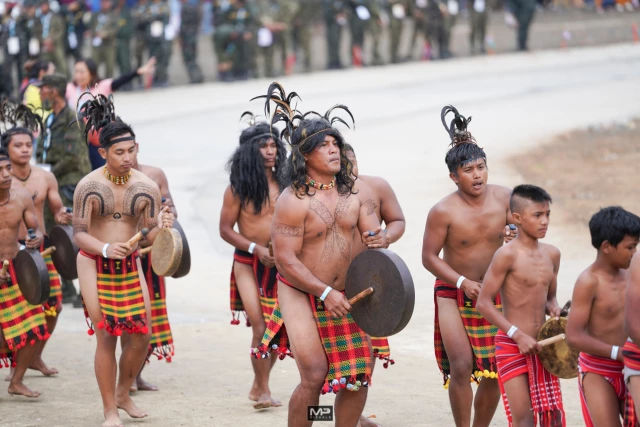
In his hunting escapades, Kabunian found out that his mountain people were too busy tending to their "uma" and rice terraces and seldom find time to enjoy as a community their fruit of labor.
On one of his hunting sprees, Kabunian announced to every tribal group he passed by that on the appearance of the new moon, he will summon all the tribal groups to a place where he will give them a gift.
He chose a mossy plateau (which is now Burnham Park in Baguio City) as the place he bequeaths his gift upon sounding his call. At the appointed time, Kabunian took his place at the highest part of the plateau with his gifts hung on trunks of pine trees.
He sounded his call like the roaring of thunder and from now where a group of tall and dark men who happened to be Ikalingas together with another group of stocky and fair-skinned men who called themselves Ifontoks rush forward to receive their gifts.
Kabunian instructed them to find their gifts hanging on the trunks of the pine trees.
The Ikalingas got hold of 14 and the Ifontoks took 7 of the Kabunian gifts which were gongs made of silver and gold.
The Kankanaeys and the Ibalois together with the Isnags who had been busy tending to their vegetable gardens and hunting wild games were late and so each group took the gongs remaining - 3 for the Ibalois, 2 for the Kankanaeys, and one for the Isnags.
Kabunian as a magnanimous giver took his hunting spear and broke it into pieces and distributed it to the three groups who arrived late. He also took his water tubes and distributed them to each of the three groups.
That's why today, we can see the IKalingas dance with as many gongs and so with the Ifontoks, while the Kankanaeys and the Ibalois together with the Isnags use at most three gongs with pieces of iron and wooden tube (Sollibao) when they dance.
Meanwhile, the Ifugaos who had been busy building their rice terraces were not able to arrive during the day Kabunian distributed his gifts. Because they became wealthy, they traded their rice with the Ikalingas for their gongs.
In February 2023, Kalinga was successful in setting two new world records in the Guinness World Record - the largest gong group with 3,440 male gong beaters and the largest pot dance with 4,681 female dancers with traditional clay pots in their heads.
The highlight of Awong Chi Gangsa, Agtu'n Chi Banga" (A call of a thousand gongs, a dance of a thousand pots) as part of the 28th Kalinga Foundation Anniversary and the Bodong Festival 2023 celebration on February 15 in Tabuk City, Kalinga.
Originally written by Ruben Wacas.


















